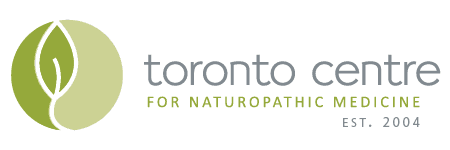Frozen Shoulder
Frozen shoulder (adhesive capsulitis) is well-treated using naturopathic medicine.
Frozen Shoulder is caused by inflammation of the shoulder capsule, resulting in inflammation and stiffness and ultimately the development of adhesions between joint surfaces and decreased range of motion.
The precise cause of frozen shoulder is unknown. Possible causes include shoulder injury or prolonged immobilization (e.g., after an arm fracture). Persons with diabetes mellitus are at a greater risk for frozen shoulder.
Frozen shoulder can lead to such a significant loss of mobility to the point that performing activities of daily living (e.g., brushing teeth) can become difficult or even impossible.
Seek professional healthcare if you experience significant pain combined with stiffness and restricted mobility in your shoulder.
Symptoms of Frozen Shoulder
Possible symptoms of frozen shoulder include:
- Pain with any shoulder movement together with decreasing shoulder mobility (“painful stage”)
- Diminishing pain together with further decrease in shoulder mobility (“frozen stage”)
- Improved shoulder mobility (“thawing stage”)
- Pain increases at night
Treatment of Frozen Shoulder at Toronto Centre for Naturopathic Medicine
At Toronto Centre for Naturopathic Medicine, the goals of frozen shoulder treatment are complete resolution of pain and recovery of shoulder mobility.
Conventional treatment for frozen shoulder may include physical therapy, and variety of medications, including non-steroidal anti-inflammatory drugs (NSAIDs), injected corticosteroids and surgery. These treatments may have short- or long-term side effects.
For this reason, you may choose to try natural treatment to possibly avoid use of conventional treatments, or together with conventional medications in order to decrease dosages of conventional medications required to manage your frozen shoulder symptoms.
Naturopathic treatment of any chronic health concern must be recognized as a process that involves:
- Identifying specific treatment goals
- Development by your naturopathic doctor, of a thorough understanding of all factors affecting your health, including physical, psychological, emotional and lifestyle factors
- Development of a comprehensive treatment plan
- Implementation and maintenance of that plan through periodic monitoring and adjustment
At Toronto Centre for Naturopathic Medicine, a typical approach to treating frozen shoulder may be to:
Identify and address underlying factors in your lifestyle (e.g., immobility) or general health (e.g., systemic diseases such as an diabetes mellitus, hyperthyroidism, hypothyroidism, cardiovascular disease, Parkinson’s disease) that may be contributing to your frozen shoulder symptoms.
- Decrease pain and improve mobility using acupuncture, Bowen Therapy or Suikodo™
- Prevent recurrence using acupuncture, Bowen Therapy or Suikodo™ maintenance protocols
Where appropriate, a number of therapeutic options are available, to be used alone, or more often in a complementary fashion, including:
- Nutritional counseling
- Nutritional supplements
- Metabolic detoxification protocols
- Botanical (herbal) medicines
- Acupuncture
- Homeopathy
- Bowen Therapy
- Suikodo™
- Hydrotherapy
- Exercise prescription
- Relaxation (meditation) training
- Lifestyle medicine and counseling
Treatments provided by naturopathic doctors are covered by most extended healthcare plans.
References
Frozen shoulder [Internet]. Mayo Foundation for Medical Education and Research; [cited 2010 Jan 13]. Available from: http://www.mayoclinic.com/health/frozen-shoulder/DS00416.


